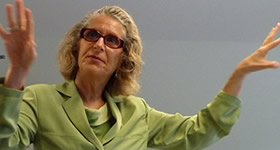In 2009, I packed The Things They Carried in the suitcase for France. It was time. A few France visits before, I had read some of Robert McNamara’s Nam book. Right after Obama’s inauguration, a New York Times op-ed reminded me that LBJ was more than Nam. LBJ was Civil Rights. I was sad that I – like popular history and the Democratic Party – had made LBJ about Nam only.
Thanks to Bob Herbert’s op-ed piece of January 19, 2009, I see Lyndon Baines Johnson more clearly. Herbert imagined the big four civil rights leaders sitting next to each other at President Obama’s inauguration: Dr. Martin Luther King, Jr., Roy Wilkins, James Farmer, and Whitney Young.
All four died before the inauguration of America’s first black president. But Herbert puts them there, in places of honor. “Imagine the stories and the mutual teasing and laughter, and the deep emotion that would accompany their attempts to rise above their collective disbelief at the astonishing changes they did so much to bring about,” wrote Herbert.
“And imagine,” continues Herbert, “a tall white man being ushered into their presence, and the warm smiles of recognition from the big four — and probably tears — for someone who has been shamefully neglected by his nation and his party, Lyndon Johnson.”
When I read that paragraph, I remembered. I knew. I was ashamed.
For as Bob Herbert wrote on that day, “Johnson’s contributions to the betterment of American life were nothing short of monumental. For blacks, he opened the door to the American mainstream with a herculean effort that resulted in the enactment of the Civil Rights Act of 1964. He followed up that bit of mastery with the Voting Rights Act of 1965.“Once the black man’s voice could be translated into ballots,” Johnson would say, “many other breakthroughs would follow.”
Now when I think of LBJ, I think of Dr. King and his colleagues welcoming this great president. I no longer think of Vietnam only. In fact, I mostly think of what Bob Herbert said… the tall white man being ushered into the presence of those four black men who so well recognized his role. For as Bob Herbert said, “[Johnson’s] commitment to civil rights so publicly vindicated, his eyes no doubt misting as the oath of office is administered.”
[From “My own story of war,” which I began writing in summer 2009 and completed in spring 2011. Available in the Free Download Library on my website.]

